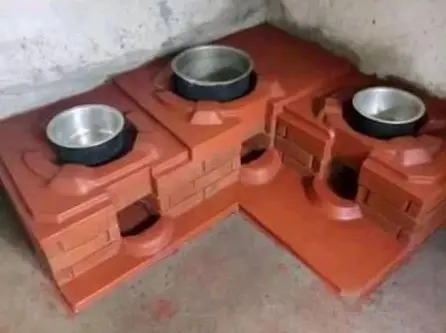Kakuzi's Jiko Kisasa project reaches 1,500 households

Kakuzi's Jiko Kisasa project reaches 1,500 households
Over 500 households in Makuyu, Murang’a country have received Kakuzi's energy-efficient cooking stove dubbed Jiko Kisasa during the fourth leg of implementing the project.
The agricultural company said it has invested over Kes15 million in the project which has now covered 1,500 households since its start in 2021. This investment covers the cost of Jiko Kisasa construction materials, installation and labour.
Kakuzi's Jiko Kisasa project aims to enhance the economic empowerment of local communities, especially within Murang'a County. Households benefit from training on how to build the double Jikos while purchasing the raw materials used in the construction from women-led micro-entrepreneurs locally.
Managing Director Chris Flowers underscored the need to empower the local community in the project stewardship, stating, "We are collaborating with all local community members, including youth, women, and elders, to enhance the sustainability of the project while providing an income-generating opportunity for the participants. This goes a long way in making them custodians of their environment"
In partnership with German Agency for International Cooperation (GIZ), Kakuzi facilitated training of 101 local youths on energy-saving Jikos installation and maintenance. The move saw the youths receive the technical construction skills, to enable them to earn an income from the project.
Additionally, over 1,000 households received training on clean cooking during the first three phases of the project, to sensitize them on the need for environmental conservation efforts.
The double Jiko Kisasa stove is designed to reduce fuel consumption and harmful smoke emissions. Its insulated fire chamber retains heat more efficiently, allowing users to cook using less firewood.
Read also: Shareholders rally behind Kakuzi’s push for diversification
These stoves are cost-effective and environmentally sustainable, as they help combat deforestation and minimize indoor air pollution. The local business community is also benefiting from the project as Kakuzi has sourced all materials for the stove installations from local women entrepreneurs, in a move to boost their income.
A 2019 research by the Deutsche Gesellschaft fuer Internationale Zusammenarbeit GmbH (GIZ) found that the Jiko Kisasa stoves have a thermal efficiency of 20 to 25 percent and save 35 to 55 percent of firewood compared to the baseline stoves (mainly three-stone fire or simple mud ring stoves), which they replace.
These new models, produced locally in artisanal and semi-industrial manner, have proven to be appropriate for the user needs and cooking practices and therefore have received a high acceptance and adoption rate in the community.



